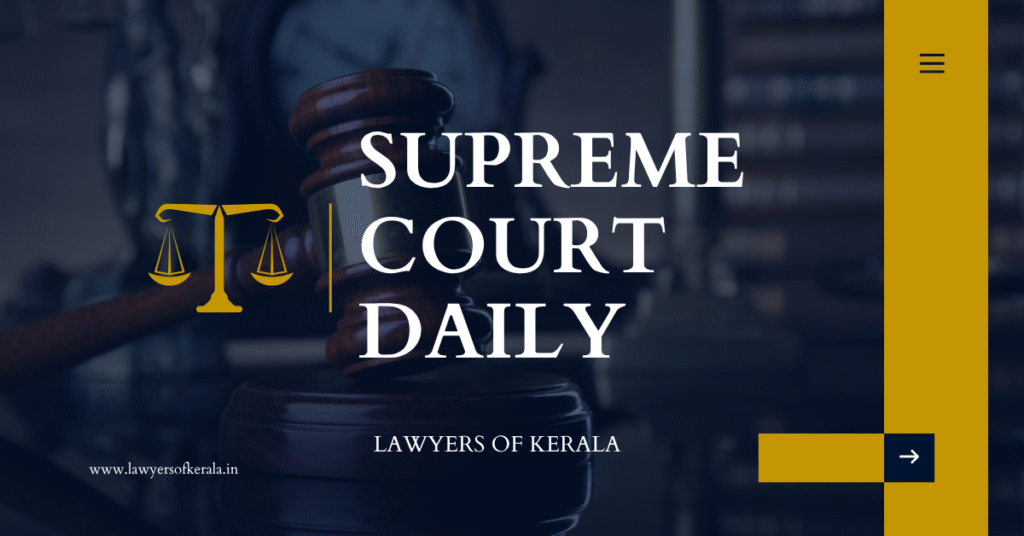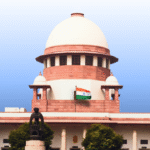CRIMINAL LAW – NEGOTIABLE INSTRUMENTS ACT, 1881 – Section 138 – Complaint – Amendment of complaint – Power of Criminal Court – Permissibility post-cognizance.
(2025) 7 SCD 81 : 2025 INSC 899
Facts: Bansal Milk Chilling Centre (Appellant) filed a complaint under Section 138 of the Negotiable Instruments Act, 1881 (NI Act), alleging dishonor of three cheques totaling Rupees Fourteen Lakhs issued by Rana Milk Food Private Ltd. & Anr. (Respondents) for the purchase of “Desi Ghee (milk products)”. At a stage where the complainant’s cross-examination was pending, the Appellant sought to amend the complaint to change “Desi Ghee (milk products)” to “milk,” stating it was a typographical mistake carried over from the preceding legal notice. The Respondents objected, arguing no amendment was permissible after cognizance was taken and that it changed the complaint’s nature, further contending it was an attempt to avoid Goods and Services Tax (GST) liability, as no GST is leviable on milk.
Trial Court Ruling: The Trial Court allowed the amendment on 02.09.2023, reasoning that since the complainant was yet to be cross-examined, no prejudice would be caused to the accused, and the amendment corrected a typographical error at an initial stage of the case.
High Court Ruling: The Respondents challenged the Trial Court’s order under Section 482 of the Code of Criminal Procedure (Cr.P.C.). The High Court allowed their petition, holding that the amendment was not a typographical error but had a wider impact, changing the nature of the complaint. It also found merit in the contention that the amendment was sought because no GST was leviable on milk.
Issue before Supreme Court: Whether a criminal court has the power to order an amendment of a complaint filed under Section 200 of the Cr.P.C., particularly after cognizance has been taken, and the criteria for allowing such amendments.
Supreme Court’s Analysis & Ruling:
Permissibility of Amendment: The Court held that the issue of a criminal court’s power to amend a complaint is “no longer res integra”. It clarified that amendments to complaints can be allowed even post-cognizance, dismissing the Respondents’ contention to the contrary.
Precedents Applied:
S.R. Sukumar v. S. Sunaad Raghuram: This case established that an “easily curable legal infirmity” can be remedied by a formal amendment application. Such amendments are permissible if no prejudice is caused to the other side, even if there isn’t an explicit enabling provision in the Code. The Court emphasized that Sukumar does not preclude amendments post-cognizance.
U.P. Pollution Control Board vs. Modi Distillery and Others: This judgment, followed by Sukumar, supported the allowance of amendments to cure “technical flaws” that are “easily curable,” even after process was issued (i.e., post-cognizance). The Court noted that it would be a “travesty of justice” to allow a party to escape prosecution due to an “incurable technical flaw”.
Kunapareddy alias Nookala Shanka Balaji vs. Kunapareddy Swarna Kumari and Another: Reaffirmed that courts in criminal cases are not powerless to allow amendments in appropriate circumstances.
Distinguished Precedent: The Court distinguished Munish Kumar Gupta vs. Mittal Trading Company, where a date alteration was disallowed, noting that in that case the amendment had a direct bearing on the timeframe for notice issuance and account balance, and was sought after a long delay, unlike the present case.
Principle of “Prejudice”: The cardinal factor for allowing amendments is whether it causes prejudice to the accused. Drawing an analogy from Sections 216 and 217 of Cr.P.C. (power to alter charge and recall witnesses), the Court highlighted that if an alteration does not prejudice the accused, the trial can proceed. If prejudice is likely, the court can direct a new trial or adjourn the existing one, and the prosecutor and accused retain the liberty to recall or re-examine witnesses.
Application to Current Case: The Court found absolutely no prejudice would be caused to the Respondents in the present case. The amendment was moved at an early stage (before cross-examination completed) and related to the description of the products supplied, which was an inadvertent error. The actual facts regarding the debt would be determined at trial. The Court stated that the amendment was a “curable irregularity” and that allowing it at this stage would not result in a “failure of justice”.
High Court’s Error: The High Court “completely mis-directed itself” by delving into the “aspects of leviability of GST,” which is a concern for appropriate tax authorities. The Court further concluded that the amendment did not alter the “nature and character of the complaint”.
Procedure as Handmaiden: The judgment reiterated the adage that “procedure…is only a handmaiden and not a mistress of justice”.
Decision: The Supreme Court allowed the appeal, setting aside the High Court’s order and restoring the Trial Court’s order dated 02.09.2023. It directed the Trial Court to proceed expeditiously, granting parties the liberty to apply for recall of witnesses already examined.


